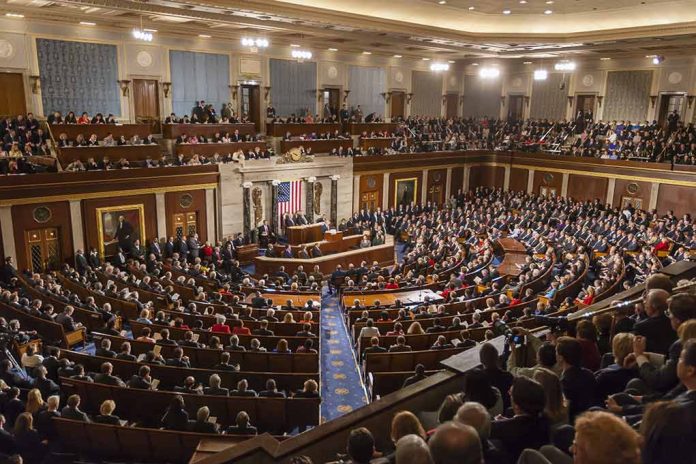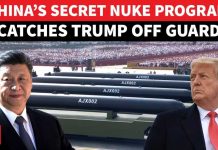
European leaders rally for increased U.S. support of Ukraine at the Tirana summit as President Trump faces pressure to maintain American commitment despite Russia’s faltering peace efforts and the European Union’s diminishing leverage in the ongoing conflict.
Key Takeaways
- European leaders gathered in Tirana, Albania for the European Political Community meeting to discuss security concerns and consolidate support for Ukraine.
- German Chancellor Friedrich Merz emphasized the critical importance of maintaining American alliance with Europe in his first major summit appearance.
- President Volodymyr Zelenskyy pushed for additional sanctions against Russia, highlighting their unwillingness to seriously engage in peace negotiations.
- European leaders collectively criticized Russia for sending low-level delegations to peace talks and failing to agree to ceasefire terms.
- Despite diplomatic efforts, the summit revealed Europe’s limited influence in resolving the Ukraine conflict compared to the United States.
Europe’s Desperate Bid for American Support
The European Political Community meeting in Tirana, Albania brought together leaders from 27 EU nations alongside Turkey, the UK, and Western Balkans countries this week, conspicuously excluding Russia and Belarus. The summit revealed Europe’s growing anxiety about maintaining President Trump’s support for Ukraine as the conflict continues with no end in sight. German Chancellor Friedrich Merz, making his first appearance at a major European summit, underscored this concern with his urgent call to “keep the Americans on our side,” according to German Chancellor Friedrich Merz.
Throughout the gathering, European leaders presented a unified front against Russia’s continued aggression while acknowledging their limited influence without American backing. Ukrainian President Volodymyr Zelenskyy attended the summit to advocate for stronger sanctions against Russia, declaring to fellow leaders that “Pressure on Russia must be maintained until Russia is ready to end the war,” as stated by Ukrainian President Volodymyr Zelenskyy. This push comes as European Commission President Ursula von der Leyen announced upcoming sanctions targeting Russia’s financial sector and Nord Stream pipelines.
🇭🇺 @JanosBoka_HU: Our influence comes from our performance
🗣️ In an interview with Magyar Nemzet, Minister for European Affairs János Bóka shared insights on the meetings, emphasizing Hungary’s influence in cultivating an open atmosphere for pivotal dialogues.
🌍 The recent… pic.twitter.com/U9IwZ2J5v7
— Zoltan Kovacs (@zoltanspox) November 15, 2024
Failed Peace Talks Prompt Joint Action
The summit coincided with failed peace negotiations between Russia and Ukraine in Turkey, which further heightened tensions among European leaders. UK Prime Minister Keir Starmer revealed the European consensus to take joint action against Russia following direct consultation with President Trump: “We just had a meeting with President Zelenskyy and then a phone call with President Trump to discuss the developments in the negotiations today, and the Russian position is clearly unacceptable,” stated UK Prime Minister Keir Starmer.
“The diplomatic efforts that we have made so far have unfortunately failed because of Russia’s lack of readiness to take the first steps in the right direction now,” said German Chancellor Friedrich Merz.
NATO Secretary-General Mark Rutte particularly criticized Vladimir Putin’s absence from the Istanbul talks and Russia’s decision to send only low-level representatives, stating, “I think Putin made a mistake by sending a low-level delegation. The ball is clearly in his part of the field now, in his court. He has to play ball. He has to be serious about wanting peace,” declared NATO Secretary-General Mark Rutte. The leaders’ frustration was palpable as France’s Emmanuel Macron and Italy’s Giorgia Meloni both emphasized the need for Russia to demonstrate serious commitment to ending hostilities.
Germany’s Leadership Role Under Scrutiny
Chancellor Friedrich Merz’s performance at the summit drew significant attention as observers evaluated Germany’s renewed position in European leadership. Expert analysis suggested expectations for the Chancellor were “very strong,” according to European policy analyst Janis Emmanouilidis. Merz used the opportunity to establish personal connections with other European leaders, noting, “This is a good opportunity to meet many of the European heads of state and government in person,” as shared by German Chancellor Friedrich Merz.
“We have to undertake all efforts we can to keep the Americans on our side,” emphasized German Chancellor Friedrich Merz.
While the summit produced no concrete decisions, it clearly demonstrated the limitations of Europe’s influence in the Ukraine conflict. Despite ambitious declarations and proposed sanctions, European leaders recognize their reliance on President Trump’s continued support. As Russia shows little interest in meaningful peace talks and Ukraine continues to require military assistance, the transatlantic relationship has never been more critical to European security interests. The reality remains that without American backing, Europe’s options for resolving the conflict or supporting Ukraine effectively are severely constrained.



